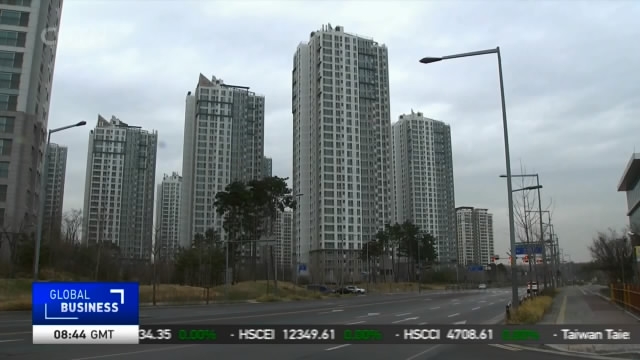
17:24, 22-May-2018
S. Korea Real Estate: Home vacancy rate jumps to record high
02:03

Fresh official data shows that South Korea's overall home vacancy rate rose to 6.5 percent last month. Some parts of the country even saw the rate jump to as high as 10 percent. What's behind the rapid rise? And how it will affect the South Korean economy? Guan Xin reports.
This is a typical gated community in South Korea's capital Seoul. Most of the residents living here are over 60 years old. Caregivers say their homes can be left vacant up to 3 years after the owners pass away.
The number of empty apartments in Seoul rose to 94 thousand last month, up 19 percent y-o-y. Data from the Ministry of Land, Infrastructure and Transport shows that the home vacancy rate in a dozen cities, including Yeosu and Naju, has been growing at an alarming rate of 6 percent in the past decade.
REAL ESTATE AGENT "There are already so many empty apartments. What's worrisome is a lot of new homes will be put on markets in the next two years."
The main reason behind the weak demand is a huge drop in population growth. Government data shows that last year saw South Korea's population growth plummet by over 40 percent from the previous year. Meanwhile, home construction has continued to expand. The number of new houses soared 60 percent in the first quarter of this year. That's the highest quarterly growth in the past 15 years. In addition, massive lay-offs in such key sectors as autos and steel also shook the housing markets surrounding the base cities of those industries.
SYEON-WIN YEON, PROFESSOR KONKUK UNIVERSITY "In the long run, aging population and low birth rate will hit the country's consumption, bring down home prices and stagnate the national economy."
South Korea's real estate market, together with its closely connected industries account for half of the country's yearly GDP. Analysts warn that the persistent rise in home vacancy rates will pose great threats to the country's macroeconomy if the government doesn't intervene. Guan Xin, CGTN.

SITEMAP
Copyright © 2018 CGTN. Beijing ICP prepared NO.16065310-3
Copyright © 2018 CGTN. Beijing ICP prepared NO.16065310-3